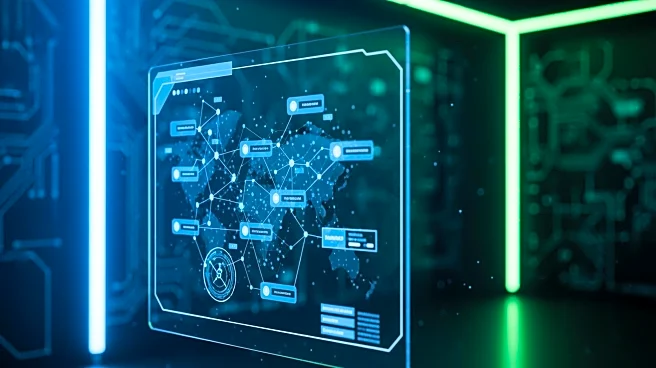What's Happening?
AI agents are emerging as essential tools in telecom operations, designed to work within high-volume environments and address complex challenges. These intelligent software entities can analyze real-time data, apply best practices, and support decision-making, reducing reliance on manual processes. The telecom industry faces a talent drain, with a significant portion of its workforce nearing retirement, highlighting the need to preserve institutional knowledge. AI agents offer a solution by automating workflows and streamlining operations, helping carriers maintain reliability and efficiency.
Why It's Important?
The integration of AI agents into telecom operations is crucial as the industry grapples with workforce shortages and increasing operational demands. By automating complex tasks and enhancing decision-making, AI agents can help carriers maintain service reliability and customer satisfaction. This technology also addresses the skills gap by preserving and scaling expertise, ensuring continuity in operations. As telecoms invest in AI-driven solutions, they must also focus on data quality and process consistency to maximize the benefits of automation.
What's Next?
Telecom carriers will likely continue to expand the use of AI agents, focusing on improving data management practices and integrating AI into more aspects of operations. As AI agents become more prevalent, carriers may explore new applications, such as personalized connectivity services and scalable network rollouts for IoT and smart manufacturing. The industry must also address governance and policy frameworks to ensure AI agents operate within defined constraints and maintain transparency in decision-making.
Beyond the Headlines
The deployment of AI agents in telecom operations raises ethical considerations, particularly regarding data privacy and the potential for AI to replace human roles. As carriers rely more on AI, they must ensure that these systems complement human expertise rather than replace it, maintaining a balance between automation and human oversight. This development also highlights the need for robust data governance and accountability in AI-driven operations.










